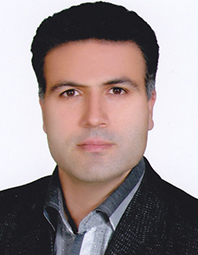Prospective Memory Based Cognitive Rehabilitation: Active Attention and Memory in Children With Hyperactivity Disorder
Author(s):
Article Type:
Research/Original Article (دارای رتبه معتبر)
Abstract:
Objective Professionals rely on the diagnostic criteria of the American Psychiatric Association (APA) and Diagnostic and Statistical Manual of Mental Disorders, Fifth Edition (DSM-5) for the diagnosis of Attention Deficit Hyperactivity Disorder (ADHD). DSM-5 recognizes three subtypes of ADHD; predominantly inattentive, predominantly hyperactive-impulsive, and the combined types. ADHD is widely recognized among the most frequent neurodevelopmental disorders, and the most frequent reason to refer children to clinics. The research suggested that ADHD children have problems with the executive functions of attention and working memory, compared with their healthy counterparts. ADHD affects all aspect of an individual's life. Unfortunately, the negative learning status experienced by ADHD children is difficult to overcome and is usually long-lasting. The cognitive rehabilitation program based on prospective memory seems to reduce executive function problems of attention and working memory and improve the educational skills of ADHD children. The present research investigated the effect of cognitive rehabilitation program based on prospective memory on the executive functions of attention and working memory in ADHD children in Kermanshah City, Iran. Materials & Methods This was a quasi-experimental study with pretest-posttest and a control group design. The study participants were 32 female children aged 8-11 years with ADHD from schools. They were selected by convenience sampling method. The subjects were divided into the experimental and control groups, each group consisting of 16 children. The experimental group participated in 18 sessions of cognitive rehabilitation program based on prospective memory and the control group did not participate in these sessions. The control group members participated in two sessions at the end of research for observing ethical considerations. The applied instruments were the revised Conners' Parent Rating Scale (CPRS-R), clinical interview, Stroop Color and Word Test (SCWT), and Working Memory Test Battery for Children (WMTB-C). SCWT and WMTB-C were completed by the researcher for all subjects in pretest and posttest phases. The required data were collected by the questionnaires before and after the training sessions. Multivariate Analysis of Covariance (MANCOVA) was used by SPSS for analyzing the obtained data. Results First, the normality of variables and contingency of variance and covariance assumptions were tested. The Kolmogorov-Smirnov test results indicated that all variables were normal (P>0.05). Moreover, the Box’s M test confirmed the contingency of variance-covariance assumption. Therefore, the assumptions of MANCOVA were confirmed and the MANCOVA test could be used for data analysis. The MANCOVA results demonstrated that cognitive rehabilitation program based on prospective memory had a significant effect on the executive functions of attention and working memory in ADHD children (P<0.0001). The obtained results also revealed that cognitive rehabilitation program based on prospective memory had a significant effect on all subscales of executive functions (correct responses, incorrect responses, no responses, the reaction time of congruent words or reaction time of incongruent words) in these children (P<0.0001). According to eta squares, 67%, 66%, 60%, 62% and 54%, of variations in components such as correct responses, incorrect responses, no responses, the reaction time of congruent words or reaction time of incongruent words, respectively, could be explained by the subjects’ participation in cognitive rehabilitation program based on prospective memory. In addition, according to eta square, 61% of variations in working memory could be explained by the subjects’ participation in the cognitive rehabilitation program based on prospective memory. Conclusion functions as well as the working memory of ADHD children. It is recommended that planning cognitive rehabilitation program based on prospective memory for ADHD children receives serious attention.
Keywords:
Language:
Persian
Published:
Archives of Rehabilitation, Volume:20 Issue: 2, 2019
Pages:
174 to 189
magiran.com/p2007312
دانلود و مطالعه متن این مقاله با یکی از روشهای زیر امکان پذیر است:
اشتراک شخصی
با عضویت و پرداخت آنلاین حق اشتراک یکساله به مبلغ 1,390,000ريال میتوانید 70 عنوان مطلب دانلود کنید!
اشتراک سازمانی
به کتابخانه دانشگاه یا محل کار خود پیشنهاد کنید تا اشتراک سازمانی این پایگاه را برای دسترسی نامحدود همه کاربران به متن مطالب تهیه نمایند!
توجه!
- حق عضویت دریافتی صرف حمایت از نشریات عضو و نگهداری، تکمیل و توسعه مگیران میشود.
- پرداخت حق اشتراک و دانلود مقالات اجازه بازنشر آن در سایر رسانههای چاپی و دیجیتال را به کاربر نمیدهد.
In order to view content subscription is required
Personal subscription
Subscribe magiran.com for 70 € euros via PayPal and download 70 articles during a year.
Organization subscription
Please contact us to subscribe your university or library for unlimited access!




